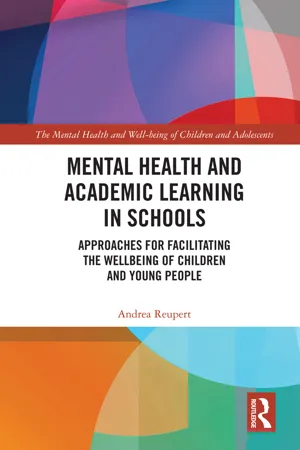In my mind, I was in charge of my own education from here. I had been, sort of, that whole year. And so, I think I just went, you’re [teacher] in charge of the class, but I’m just here in charge of myself and I’m going to be doing my own thing. And once they [teachers] knew that I wasn’t in their class to be learning what they were teaching me – well, I was still learning, but I just wasn’t in their class to be taught by them – they sort of went, oh, that’s not right.
This mindset helped Alice but, perhaps unsurprisingly, it did not go down well with all of her teachers.
[I began] to feel much more relaxed and happy that school – I’d begun to sort of slow down and sit back in classes because I wasn’t there tentatively taking notes. And I’d sit back and actually listen to what they were saying and realise, no, that’s actually not right. Or that’s – I don’t agree with this. And if they would ask for an opinion and I’d put my hand up and give the opinion of who thinks this, who thinks that – but if they didn’t like my opinion, they would sort of skip over it. And then so I’d go, whoa, whoa, whoa, whoa, whoa, hold on, I’ve given my opinion on this topic, which you’ve left open for discussion, at least tell me why you think my opinion isn’t correct or where I’ve gone wrong … And they went, oh wait, so she does want to learn with us but, oh, she’s being a little bit rude about it because I was getting frustrated at this point and I had sort of stopped using all my manners. So, after a while I was wagging school a lot too. I just wouldn’t turn up to class or I’d just leave. And I got caught a few times, but I just didn’t really care.
She continued to wag and, on this basis, was expelled from school and “never went back”. Three years later, Alice is now enrolled in a Science Diploma at a city university with plans to go into nutrition, though as she is quick to point out, she failed science all through school. She concluded the interview, excited for the future:
And the thing is that I’m excited about learning because I know it’s going to be challenging because one thing that I sort of – it didn’t get taught to me, but it just sort of – it was never said directly, but it just sort of felt like it was all around me that I’m not smart enough. I’m failing because I’m not smart enough. When really, no, I was just depressed. But I’ve sort of slowly learnt that I actually am bright, and I am – I always thought that science was something that I could never do because I wasn’t smart enough. Then I realised, no actually – so, encouragement helps a lot.
Alice most definitely had a problem – in the first instance, her diagnosis of dyslexia followed by depression and anxiety. She certainly became a problem as can be seen by her “disruptive” behaviour in class, truancy and eventual expulsion. But was Alice the problem? I don’t think so. Instead, I would suggest that the problem was a mismatch between her unique, though not uncommon, learning needs and an overstretched, under-resourced educational system that was not able to support and challenge her and accommodate her particular learning and mental health needs. This distinction is important, as it moves from trying to “fix” or otherwise change Alice to instead concentrating efforts on teaching and learning practices and resourcing. Like many other children, she started off happy to go to school, but then, slowly but surely over time, her experience of school became increasingly negative. It is thus incumbent on educators and administrators to change the course of learning for children such as Alice to prevent the downward spiral into academic failure and despair that too many children currently experience.
The following book is written for and about young people such as Alice. It is based on the premise of putting children at the forefront of decision making. Once we place children at the centre of our thinking, we start to ask hard questions about the established order and the way that things have always been done, even if we do not always have the answers. For instance, how do we decide at what age should children start school? In many European countries it is 7 years of age, while in other countries it is 5. Why, and in whose best interest? Other questions should also be asked. For example, why does sitting down equal learning? Why is play undervalued? What is the best physical layout of schools? Why are art, music and movement undervalued? Can teachers be both authoritative and caring? Why do teachers have to be called Mr or Ms to show respect? Why don’t we celebrate mistakes? Why do schools give out printed stickers/certificates to reward children? These are not necessarily easy questions, but if we are genuine about supporting children’s learning and mental health, it is critical that we start to explore what works, for which student groups and when.
Children’s learning, emotional wellbeing and mental health will be enhanced if we find the right answers to these questions. This book intends to answer some of these questions but, ultimately, aims to reflect on ways in which children’s academic learning and mental health can be simultaneously promoted. By engaging in these questions and supporting a holistic approach, schools can create a safe, interactive and positive environment that allows all children to be fully engaged and actively involved in their own learning journey.
